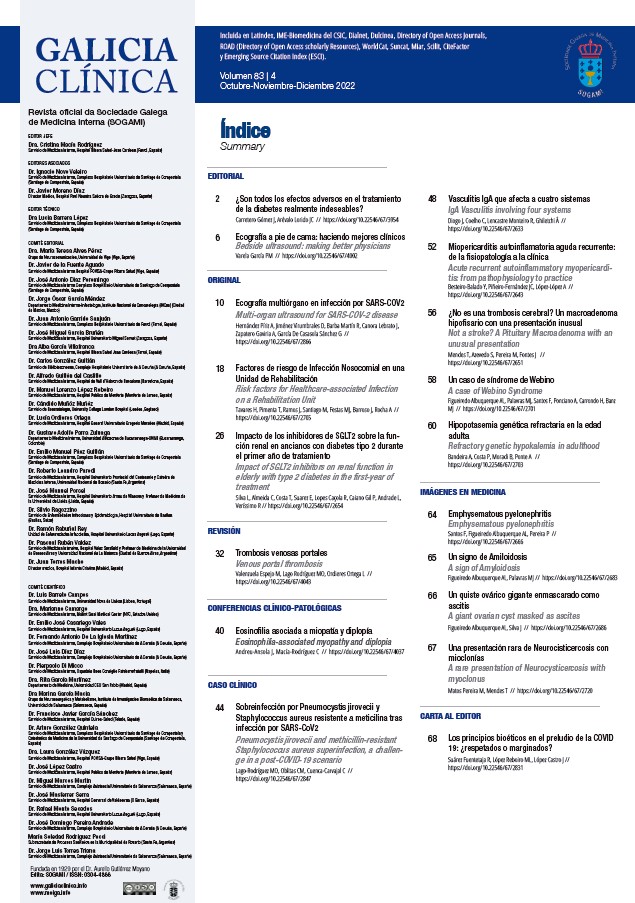Resumen
Recurrent myopericarditis is the acute inflammation of the pericardium and myocardium that relapses after a symptom-free interval of 4 to 6 weeks. A thorough differential diagnosis is necessary to identify uncommon causes that may have therapeutic and prognostic importance. These include autoinflammatory diseases, which can present as recurrent myopericarditis in genetically predisposed or impaired-immunity individuals. We present a 33-year-old male with polyclonal hypogammaglobulinemia and six episodes of myopericarditis, in which the diagnosis of a probable autoinflammatory syndrome was established. Targeted treatment based on the pathophysiological mechanismswas started with immunoglobulins and anakinra, with favourable clinical and serological outcome with no relapses. Organ-specific autoinflammatory diseases with myocardial involvement may be associated with life-threatening complications. The role of multidisciplinary care and a diagnostic approach focused on the pathophysiology of the disease could be the most important thing for early treatment to improve the prognosis and quality of life of our patients.
Esta obra está bajo una licencia internacional Creative Commons Atribución-NoComercial-SinDerivadas 4.0.
Derechos de autor 2021 GaliciaClinica - Revista Oficial de la Sociedad Gallega de Medicina Interna SOGAMI


